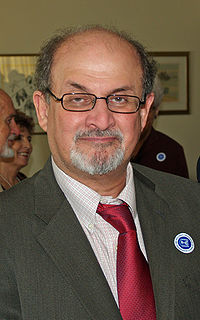Interviewing Skills vs. Writing Skills
 The other day I was listening to an interview of former Seattleite, well-known, modern dancer Mark Morris on National Public Radio (NPR). While Morris is an unparalleled dancer, choreographer, and teacher, he is also thoughtful and articulate on all aspects of dance and dancers.
The other day I was listening to an interview of former Seattleite, well-known, modern dancer Mark Morris on National Public Radio (NPR). While Morris is an unparalleled dancer, choreographer, and teacher, he is also thoughtful and articulate on all aspects of dance and dancers.  Add to that Terry Gross of NPR's Fresh Air and her interviewing style, and the result was a witty, informative hour.
Add to that Terry Gross of NPR's Fresh Air and her interviewing style, and the result was a witty, informative hour.
It also brought home to me the view Terry Gross espouses as an interviewer: The goal is not to show how much of the subject matter the interviewer has grasped, not how much she knows, but rather how much (in breadth and depth) can she get the interviewee to tell her and the listeners during the interview. Constant interruption and restatement, or very rigid questions, always limit the scope of the answer. Especially when you have a locquacious articulate guest, give him space to speak so long as he stays to the point and on topic.
This rumination led me to thinking that like the interviewer, the writer has the same job. It's not the writer's writing talent or grasp of the English language—King's English vs. grammar, which is the Queen's English, according to @mcvane—that the reader is there for, but to be drawn into the story with a ring-side seat as it is unfolding. Booker prize winning Midnight's Children remains one of Salman Rushdie's last best fiction work. He has pubished other fiction, but they're all hampered by his intellect and fantastic writing talent. He gets so caught up in the virtuosity, that the main thrust of story, character-building, etc. all fall by the wayside. As Pico Iyer says in Tropical Classical, "No writer I know has seemed more captive to his gifts: his powers of invention and imagination are so prodigal and so singular that he often gives the impression of not knowing when to stop."
Booker prize winning Midnight's Children remains one of Salman Rushdie's last best fiction work. He has pubished other fiction, but they're all hampered by his intellect and fantastic writing talent. He gets so caught up in the virtuosity, that the main thrust of story, character-building, etc. all fall by the wayside. As Pico Iyer says in Tropical Classical, "No writer I know has seemed more captive to his gifts: his powers of invention and imagination are so prodigal and so singular that he often gives the impression of not knowing when to stop."
Such unrestrained proclivity sounds the death knell for any novel. A story where the characters don't get to breathe and to live their lives in all their successes and foibles is a travesty of a story, for all you get for your money is the author showing off.
The focus of a novel should always be on the story and the people inhabiting the story. The language is in service to the story, an upstairs Regency maid if you will, who helps her lady to always put her best foot forward.
As a writer, if you're ever in doubt that you're showing up too much in a story, then always follow Robert Benchley's (1889–1945) fine example: "Drawing on my fine command of the English language, I said nothing."

2 comments:
LOL, I love Robert Benchley!
But I think you're on to something. I find that when I focus on writing the most lyrical prose I can, I lose track of the actual story. It's also about trusting your own Voice as well--if you allow the story and characters to take the steering wheel, the writing will be natural and strong.
BTW, this is the most apt and astute analogy: "The language is in service to the story, an upstairs Regency maid if you will, who helps her lady to always put her best foot forward."
Thanks for stopping by, Ev, and for comenting. Some writers do it brilliantly, a quick unique turn of the phrase that exactly illustrates the point the character wants to make. It the kind that causes a surprise burst of laughter to escape from you, your head to give a nod in appreciation of the characters, and an inner feeling of gladness that the author gave you this bit of pleasure.
Post a Comment